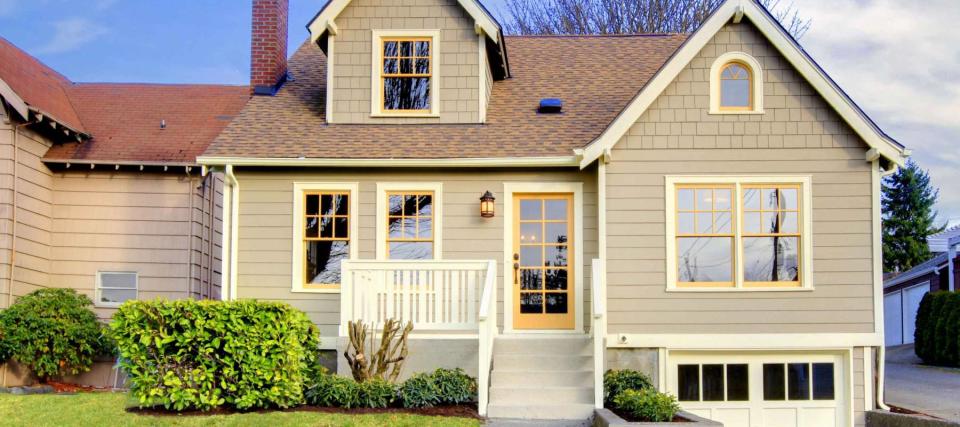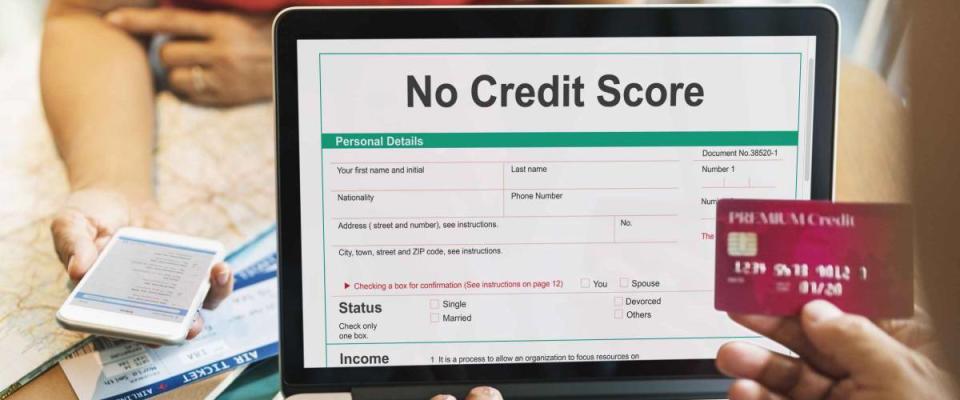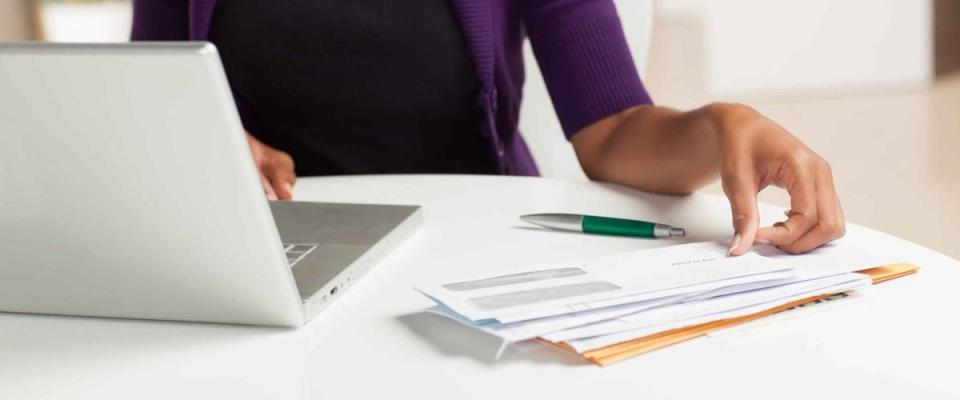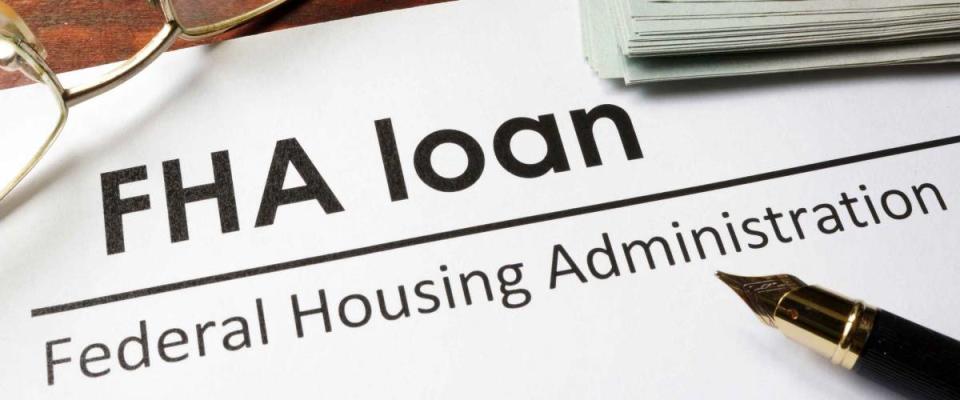How you can get a mortgage even if you have no credit history

If you’re thinking of buying a home, you probably know that having a good credit score will help you get approved for a mortgage loan at today's historically low rates.
But what if you don’t have a credit score?
It turns out — while the mortgage application process is a bit more complicated — you still have options.
The difference between 'no credit' and 'low credit'

When it comes to getting a mortgage, it's important to know the difference between "no credit" and "low credit." And to do that, you need to understand what a credit score is in the first place.
Long story short: A credit score is a number that helps lenders determine how risky it is to lend you money. There are many different types of credit scores, but the most widely used is called a FICO score.
If you’ve never taken out a line of credit before, you may think you have a credit score of zero, but this isn't the case. You actually have no credit score. For your credit score to be calculated, you need to have credit in your name (e.g., auto loan, student loan, credit card, etc.) for at least six months.
Typically, your starting credit score will fall into the "fair" range, between 580 and 669. You can see for yourself, because today it's easy to get a peek at your credit score for free.
Having no credit score is much different than having a low credit score. A low score means you've borrowed money and have done a poor job paying it back. This is a red flag for lenders and makes it more difficult, but not impossible, to secure a mortgage loan.
So, can you get a mortgage with no credit?

You certainly can.
Remember, the main purpose of your credit score is to help prove your creditworthiness.
While having a low credit score shows lenders you are not creditworthy, having no score just means you have to prove your creditworthiness in other ways.
Getting a mortgage with no credit history

Lenders use computer algorithms to help them process mortgage applications. They need that help, because the COVID era's ultra-low mortgage rates have brought lenders a flood of applications.
If you’re a low-risk borrower with a high credit score, steady income, low debt-to-income ratio (DTI) and sizable down payment, the algorithms can approve your loan quickly.
If you do not have a credit history, the process is a bit more tedious. Instead of getting approved by a computerized model, you need to have your application underwritten manually.
What is manual underwriting?
In manual underwriting, lenders don't rely on computer programs but look personally at your ability to repay a mortgage. They put your finances under a magnifying glass to determine if you can be trusted to pay back your loan.
There are several things you can do to help pass this inspection. You’ll want to:
1. Provide evidence of payment reliability.
You may not have a history of paying off loans, but you do have a history of paying other bills on time. To demonstrate your payment reliability, you’ll need to gather 12 months of payment history for two to three different recurring expenses. One of these needs to be a housing-related expense, while the others could include:
Utility bills.
Child care payments.
Internet and cellphone bills.
In addition to your payment history, you’ll also need to submit documentation showing two years of steady income. This usually means pay stubs, W-2 forms, and tax returns. If you’re self-employed, you may also need to provide a profit-and-loss statement.
2. Make a big down payment.
One of the best ways to make up for a lack of credit history is to put more money down.
If you’re able to put 20% down, it’ll prove to your lender that you’re responsible enough to save money. Not only that, but you won’t be required to pay mortgage insurance if you take out a conventional loans.
A 20% down payment isn't always essential, but the more you put down, the higher your odds of approval.
3. Choose a conventional 15-year mortgage
As you’ll see shortly, there are government loans specifically designed for those with poor or no credit. And while these may be easier to qualify for, they're more expensive in the long run.
If you have a high enough income to afford the monthly payments, you’ll end up paying significantly less over time with a 15-year conventional mortgage.
Buying a house with no credit using an FHA loan

If you don’t qualify for a conventional home loan, you might take out an FHA loan to buy a house with no credit.
An FHA loan is a mortgage insured by the Federal Housing Administration. Since these loans are backed by the government, they allow lenders to approve mortgages for riskier borrowers — including those who don’t qualify for conventional loans due to their credit history.
This makes an FHA mortgage especially attractive for first-time homebuyers, although repeat buyers can use them as well.
How does an FHA loan work?
Unlike conventional mortgages, which typically require a credit score of 620 or higher, you can get approved for an FHA loan with a score as low as 500 — or no credit score at all.
Just like a conventional loan, your application will be manually underwritten, and you’ll have to show a solid history of paying your bills on time.
Depending on your credit, you can take out an FHA loan for as little as 3.5% to 10% down.
So far, sounds like the perfect solution, right? There’s just one catch.
Is an FHA loan a good idea?
With lenient credit score and down payment requirements, FHA loans may seem like an attractive option at first glance.
But if you crunch the numbers, you’ll discover they may not be all they’re cracked up to be.
This is mainly due to the loans' mortgage insurance premiums (MIP). With a conventional loan, you have to pay mortgage insurance until you build 20% equity in your home. But with an FHA loan, you might be required to pay MIP permanently.
If you put down less than 10%, you’ll pay annual mortgage insurance premiums for the entire length of the loan. If your down payment is greater than 10% — which is recommended — you’ll still be stuck paying MIP for 11 years.
In the long run, this makes FHA loans substantially more costly than conventional loans. That said, if you need to buy a house, can’t get approved for a conventional loan, and don’t have time to build your credit score, an FHA loan can be a great last resort.
How to buy a house with no credit and no money down

Believe it or not, it is possible to buy a house with no money down and no credit history. But qualifying for a mortgage will be challenging, and you’ll likely get stuck with unfavorable terms.
One option is to apply for a USDA loan. These loans are insured by the U.S. Department of Agriculture and allow low- to moderate-income earners to buy fully-financed homes with no credit requirements. The catch is that these loans are only good for rural and some suburban properties.
If you’ve served in the military, another alternative is a VA loan.
VA loans are backed by the federal government and have no minimum credit score or down payment requirements. You will, however, have to pay a one-time VA funding fee.
This article provides information only and should not be construed as advice. It is provided without warranty of any kind.

 Yahoo Finance
Yahoo Finance 